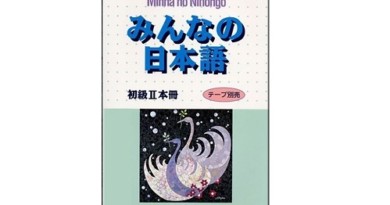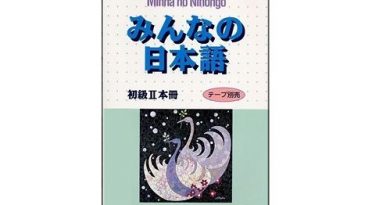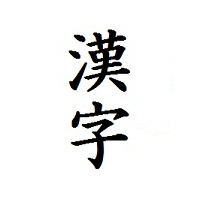Contents
- 1 Learn minna no nihongo lesson 25
- 1.1 6. Mondai
- 1.1.1 Exercise 1: Listen and answer questions
- 1.1.2 Exercise 2: Listen and choose true or false
- 1.1.3 Exercise 3: Give the true form of the word
- 1.1.4 Exercise 4: Choose the appropriate phrases from a to f to fill in the blank
- 1.1.5 Exercise 5: Use the given phrase to complete the sentence
- 1.1.6 Exercise 6: Read the following paragraph and choose true or false
- 1.1 6. Mondai
Learn minna no nihongo lesson 25
6. Mondai
To do the “Mondai” section, you need “minna no nihongo” book and audios for listening
Exercise 1: Listen and answer questions
With this exercise, first you need to listen to the question and write down what you have listened and then answer the question according to your own understanding. You should not try to focus on clearly listening to each word of a sentence then missing the following sentences. You should listen it for the first time, answer the questions one by one, with the questions you can’t listen then listening to them the second time. After that, you can listen again and copy the words to improve your listening skill and remember words better. Finally, after listening and answering all questions, you can refer to the translation and the answer below.
Translation :
1. もし 1,000万円 あったら、何を したいですか。
moshi 1000 man en attara, nani wo shi tai desu ka.
If you have 10 million yen, what do you want to do?
2. にちようび いい天気 だったら、どこへ 遊びに 行きたい ですか。
nichiyoubii itenki dattara, doko he asobi ni iki tai desu ka.
If the weather is nice on Sunday, where do you want to go to play?
3. 年を取っても、働きたいですか。
Nen wo tottemo, hatarakitai desuka?
Do you want to work even if you get older?
4. 体の 調子 が 悪かったら、どうしますか。
karada no choushi ga warukattara, dou shi masu ka.
What should I do if I don’t feel well?
5. 第25課 の問題 が終わったら、何をしますか。
dai 25 ka no mondai ga owattara, nani o shi masu ka.
What will you do after doing exercises of lesson 25?
Answer :
1. いろいろな 国を 旅行したいです
Iroiro na kuni wo ryokou shitai desu.
I want to travel to various countries.
2. 公園へ 遊びに 行きたいです。
Kouen he asobini ikitaidesu.
I want to go to the park to play.
3. 仕事を 休みます。
Shigoto wo yasumimasu.
I will quit my job.
4. 音楽を 聞きます。
Ongaku wo kikimasu.
I will listen to music.
5. はい、働きたいです。
Hai, hatarakitai desu.
Yes, I still want to work.
Exercise 2: Listen and choose true or false
With this exercise, the listeners will listen to the conversation, then there will be a key point about the problem that will be raised in the conversation. The listeners must choose whether the content is true or false according to what they has listened. If it is true, select 〇 (maru) and if it is false, choose ✖ (batsu). In this listening section, you should pay attention to the concluding sentence to see whether that sentence is given in a positive or negative form in order to avoid being “tricked” when listening.
1.
男: カリナさん 1年休み を もらったら、何を したいですか。
Ms. Karina, what do you want to do if you get a year off work?
女: 外国の 美術館へ 絵を 見に 行きたいです。
ミラーさんは?
I want to go to a foreign museum to see pictures. What about Mr. Miller?
男: 私は いろいろな 国へ ビールを 飲みに 行きたいです。
I want to go to different countries to drink beer.
★ 長い休み が あったら、カリナさん は 絵を かきに 行きます。
★ If Ms. Karina has a long holiday, she will draw pictures.
Answer:(✖)
2.
男: あした 暇だったら、京都へ 行きませんか
ゆうめいな お祭りが あります。
If you are free tomorrow, why don’t you go to Kyoto with me? There is a famous festival.
女: いいですね、雨が 降っても、ありますか。
Sounds good! Will the festival be held even if it’s raining?
男: 雨だったら、ありません。
If it’s raining, the festival won’t be held.
女: そうですか。
Is that so.
★ あした あめが 降ったら、お祭りが ありません。
★ If it’s raining tomorrow, the festival won’t be held.
Answer(〇)
3.
女: いつ インドへ 行きますか。
When will you go to India?
男: 夏休みに なったら、すぐ 行きます。
I will go as soon as the summer vacation comes.
女: いつ 帰りますか。
When will you come back?
男: そうですね。お金を 全部 使ったら、帰ります。
Well. If I spend all my money, I will come back.
女: そうですか。気を つけて くださいね。
Vậy à, chúc anh thượng lộ bình an.
★ 男の人は 旅行から 帰ったら、お金が ありません。
★ After coming back from a trip, the man will have no money.
Answer(〇)
4.
女: 吉田さん、車を 持って いますか。
Mr. Yoshida, do you have a car?
男: いいえ。
No, I don’t.
女: 車が あったら、便利ですよ。
If there is a car, it will be convenient.
男: そうですか。あっても、むだだと 思います。
Is that so? I think it is a waste of money.
女: どうしてですか。
Why?
男: 大阪の 町 は 車が 多いですから、自転車の ほうが 速いですよ。
There are many cars in Osaka, so bicycles are faster.
★ 男の人は 車が ありますが、自転車に 乗ります。
The man has a car but he rides a bicycle.
Answer(✖)
5.
女: お釣りが でません。
The change doesn’t come out.
男: このボタンを 押しましたか。
Have you pressed this button?
女: ええ、押しても、でません。
Yes, although I press this, it doesn’t work.
男: じゃ、故障ですね。店の 人に 言いましょう。
Well, it must be broken. Let’s talk to the staff.
★ ボタンを 押しましたが、お釣りが 出ませんでした。
The woman pressed the button but the change didn’t come out.
Answer (〇)
Exercise 3: Give the true form of the word
This exercise is to review the two grammar structures you have learned. In order to do this exercise, you need to review the grammar before doing and read the sentence carefully so that you can give the correct form of the word.
Example:
雨が(降ります → 降った)ら、出かけません。
If it’s raining, I won’t go out.
Here are some exercises, after finishing, you can refer to the answers and translations below
1. 毎日 日本語 を(使ります → )ら、上手に なります。
2. バスが (来ません → )ら、タクシーで 行きましょう。
3 月曜日が(無理です → )ら、火曜日に レポートを 出して ください。
4. 日曜日 天気が(いいです → )ら、ゴルフに 行きませんか。
5. いくら(教えます → )も、わかりません。
6. パソコンは 高いですから、(便利です → )も、買いません。
Exercise 4: Choose the appropriate phrases from a to f to fill in the blank
To do this exercise, you need to understand the vocabulary and grammar you have learned in the lesson to be able to understand the meaning of the sentence, then you can find the correct answer.
| Example | 時間が あったら、 | _d_ | a. | エアコンを つけてください。 |
| 1. | お金が あっても、 | b. | 洗濯しなければ なりません。 | |
| 2. | 暑かったら、 | c. | 何も 買いません。 | |
| 3. | 仕事 が 忙しくても、 | d. | 遊びに 行きましょう。 | |
| 4. | いい 会社だったら、 | e. | 毎晩 日本語を 勉強します。 | |
| 5. | 雨でも、 | f. | 入りたいです。 |
Example :
時間が あったら、遊びに 行きましょう。
If you have time, let’s hang out.
Answer :
1.
2.
3.
4.
5.
Exercise 5: Use the given phrase to complete the sentence
This is an exercise that is similar to the Renshuu section, you will use the information that was given and choose the correct grammar to complete the sentence.
Example :
いつ 旅行に 行きますか。(休みに なります)
When will you go traveling?
……休みに なったら、すぐ 行きます。
I will go as soon as I’m on my day off.
Here are some exercises, after finishing, you can refer to the answers and translations below
1. 何時に パワー電気へ 行きますか(会議が 終わります)
2. いつ 結婚したいですか(大学を 出ます)
3. 何時ごろ 出かけましょうか(昼ご飯を 食べます)
4. いつごろ 新しい 仕事を 始めますか(国へ 帰ります)
Exercise 6: Read the following paragraph and choose true or false
(1) ①の 女の人は 暇な時間 があまり ありません。
(2) ②の 男の子は 今 お金 がたくさん あります。
(3) ③の 女の人は 若いとき、勉強しませんでした。
(4) ④の 男の人と 話しても、おもしろくないです。
(5) ⑤の 女の子は 2人に なったら、いっしょに 学校へ 行きます。
Translation and Answer:
Things that I want
I asked many people about what they want most.
(1) It is “time”. I go to the company, then work and go home, and it is the end of the day. A day is too short. I want to have about 36 hours a day.
(The woman, 25 years old)
(2) I want to own “my own bank”. If you own a bank, you can make a withdrawal whenever you like, and you can buy what you like.
(The boy, 10 years old)
(3) It is “rejuvenation medicine “. When I was young, I did not study hard. If I were young again, I would try to study and do a good job.
(The woman, 60 years old)
(4) I want “humor”. Every time I tell stories, my wife says, “You are busy tomorrow, right? Please go to sleep now.” And my children say, “Dad, I’ve heard this story three times.” I want to be an interesting person.
(The man, 43 years old)
(5) I want to have another “me”. Every day I have to go to school. If there are two “me”, while one is studying at school, the other can do what it likes. I want to become 2 people.
(The girl, 14 years old)
Question:
1. The woman in number (1) has no free time (〇)
2. The boy in number (2) has a lot of money now (✖)
3. The woman in number (3) did not study hard when she was young (〇)
4. It is not interesting even if you talk to the man in number (4) (〇)
5. If the girl in number (5) became 2 people, they would go to school together (✖)
Above is instruction to Learn minna no nihongo lesson 25. See other lessons in category : learn Japanese with minna no nihongo or: Japanese for beginers.


